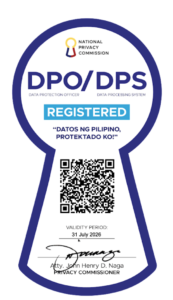The Ultimate Guide to Managing Multicultural Teams

How did diversity become important in the workplace?
Businesses are realizing the value of diverse multicultural teams as globalization advances. Our world is only getting smaller. We’re more connected than ever because of globalization. Diverse members on your team are a surefire way to achieve outstanding outcomes. It brings more creative ideas, efficient problem-solving, and endless innovation.
These varying views can produce comprehensive and well-rounded decision-making processes. Multicultural teams can identify blind spots by adding to different perspectives. Overlooked solutions are being taken into consideration.
Furthermore, diversity in the workplace cultivates a culture of inclusivity and belonging. Employees from different backgrounds feel valued and appreciated. This makes them feel engaged and committed to the team and organization. This can lead to higher employee satisfaction and retention levels.
Organizations must use specific strategies to harness diversity. Make the best out of managing multicultural teams below.
Effective Strategies for Managing Multicultural Teams
- Build cultural awareness
Leaders must develop cultural awareness. This is key to managing multicultural teams. This involves valuing team members’ different cultures’ norms, values, and styles. Leaders can avoid misunderstandings by learning about the team’s cultures. This also promotes a more inclusive work environment.
- Promote open communication
Clear communication is vital for any team. Practicing this is crucial for managing multicultural teams. Leaders must start a dynamic that encourages open dialogue and active listening. This lets team members voice their thoughts and concerns. It ensures that everyone feels heard and respected. Having regular team meetings and offering chances for feedback can help. They can improve communication dynamics in multicultural teams.
- Encourage collaboration
Collaboration is a cornerstone of successful multicultural team management. Leaders should find ways to create an environment that encourages teamwork. They must emphasize the value of thinking from opposite perspectives. Assigning team members to cross-cultural projects can promote understanding. It perpetuates appreciation for other cultures. It also develops a stronger sense of unity for a shared purpose.
Pitfalls to Avoid When Managing Multicultural Teams
It’s rewarding to lead a multicultural team. But it doesn’t mean it doesn’t have difficulties. Being familiar with pitfalls prevent chances of encountering them.
- Assuming cultural homogeneity
A mistake anyone can make of is thinking people from the same country share the same beliefs. It’s important to keep in mind that even within one culture, attitudes, and behaviors can vary. Leaders must not make assumptions. They should take the time to understand each team member as unique individuals.
- Language barriers
Language barriers in multicultural teams can cause miscommunication. Access to language support and translation services may help address this issue. Exercising patience and understanding can help team members overcome language barriers. This can engage the team in effective communication.
- Neglecting cultural celebrations
Organizing cultural celebrations can help promote inclusivity within multicultural teams. Efforts to recognize important cultural holidays will make team members feel more seen. It’s also an opportunity to bring team members together. It’s also a way to show respect for different cultures.
Is your team Culture Intelligent?
Cultural intelligence (CQ) is a person’s ability to work well in internationally diverse environments. It involves understanding different cultural norms. It also measures adaptability in interacting with people from international backgrounds. Team members must develop cultural intelligence. It’s a must for growing a multicultural team.
- Provide cultural training
Organizations should invest in cultural training programs. These programs can include workshops, seminars, and online courses. They educate employees about different cultures, their customs, and proper behaviors. Giving team members cultural knowledge helps. It lets leaders better navigate diverse environments.
- Encourage cultural exchange
Leaders can host events where team members learn from each other’s cultures. Team-building activities, cultural exchanges, or multicultural lunches can make this happen. Encouraging cultural exchange strengthens mutual understanding and appreciation. It creates a harmonious bond for multicultural teams.
- Promote self-reflection
Developing cultural intelligence requires people to think about their own cultural biases. It compels them to rethink their initial assumptions. Leaders can encourage them to question their own views. This self-awareness is key. It’s important for exercising empathy. It improves how they interact with people from different cultures.
Proven Tips for Creating an Inclusive and Positive Team Culture
Creating an inclusive team culture is key. It’s vital for the success of managing multicultural teams. Here are some strategies to promote inclusivity and foster a positive team culture:
- Lead by example
Leaders set the tone for a team’s dynamic. They should model inclusive behaviors. This includes seeking diverse perspectives. They must also value their team members’ contributions. They should address any bias or discrimination. Leading by example encourages team members to accept diversity. It nurtures a culture of respect and inclusivity.
- Establish clear team norms
Clear definition of team norms can help establish a positive team culture. These norms should include guidelines for respectful communication, collaboration, and inclusivity. Setting clear expectations helps. It ensures that team members understand the principles of a positive team culture.
- Encourage employee resource groups
ERGs are voluntary. Employees lead them. They give support and resources to people from specific backgrounds or identities. These groups are beneficial for managing multicultural teams. They create spaces for team members to connect, share, and build a community. Leaders can encourage the formation of ERGs. This provide support and resources to help them thrive.
How Can Multicultural Teams Handle Conflict Resolution?
In every relationship or team, conflicting points and perspectives will be inevitable. Multicultural teams are no exception. But managing conflict in a multicultural context needs a nuanced approach. Here are some strategies for effective conflict resolution in multicultural teams:
- Promote cultural understanding
Conflicts will happen in multicultural teams. Leaders must remind team members to seek understanding first. They can do this by considering cultural differences. By encouraging empathy and perspective-taking, leaders can help team members see that differences in how they communicate, resolve conflict, and solve problems may come from culture.
- Start an open dialogue
When conflicts occur, you must create a safe space. In this space, people can have an open dialogue. It makes them more open-minded about finding solutions. Leaders should encourage team members to share their concerns and views and listen to each other. By enabling open and respectful communication, leaders can help team members find common ground and work through conflicts better.
- Mediation and cultural sensitivity
In more complex conflicts, leaders may need to intervene and provide mediation. Leaders must approach mediation with cultural sensitivity, considering the background and values of the people involved. This may involve seeking advice from cultural experts or a neutral third party. They can help bridge cultural gaps and aid resolution.
Managing multicultural teams requires a deep understanding of the value of workplace diversity. It also requires effective strategies for team management. Embracing differences and cultural intelligence will let us appreciate the strengths of diversity. Members of the team will reap the benefits it brings in the end. They do this by promoting inclusivity and fostering a positive team culture. The right approach can help manage multicultural teams. It can lead to more innovation, happier employees, and better team performance.
Booth & Partners, Your Partner in Building Successful Multicultural Teams
Booth & Partners is here to support your organization. We’ll help you build and manage successful multicultural teams. Our expertise in scaling organizations with remote teams across cultures makes us naturally receptive to your unique needs.
We have access to talent pools in the Philippines and Colombia with professionals who possess the specific skillsets you’re looking for. Whether you’re looking for Talent Solutions or Managed Solutions, our comprehensive hiring process creates a team that will meet your standards, significantly improving your operations.
What are you waiting for? Embrace the strengths of a multicultural team today. Optimize your multicultural workforce and connect with us.
Discover more about outsourcing and
how you can maximize it for your
business success!
Get a copy of our E-book: Guide to Outsourcing.




